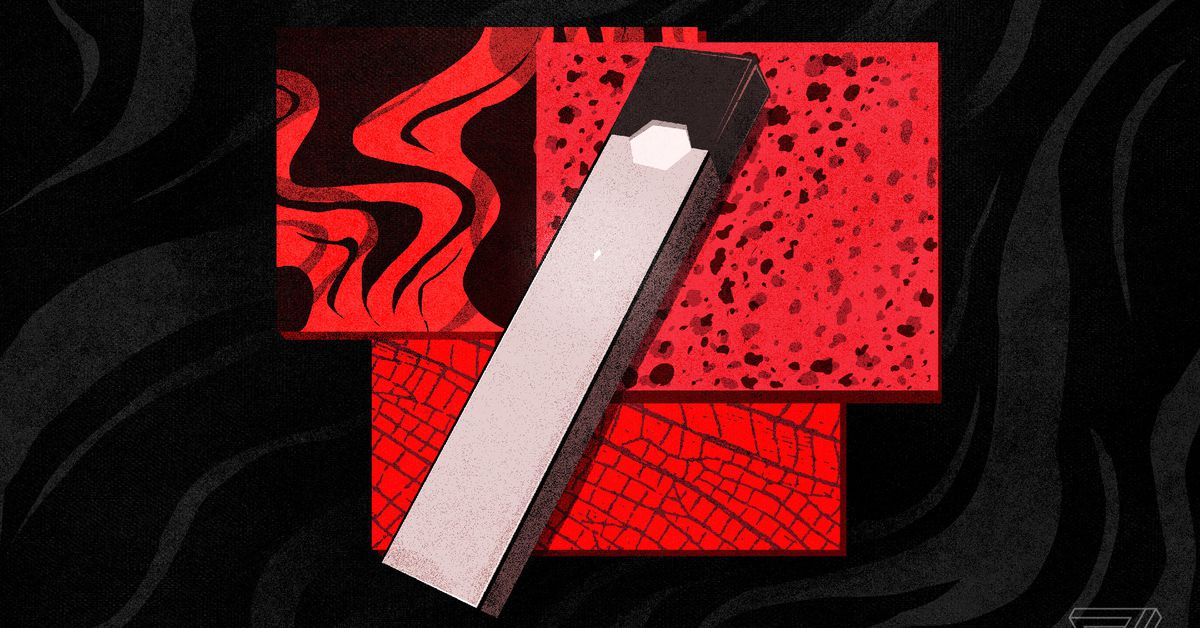
[ad_1]
E-cigarette company Juul Labs will stop supplying over 90,000 brick-and-mortar stores with its fruity and dessert-flavored pods, the company announced today. It’s also quitting Facebook and Instagram in an effort to dampen the popular vape’s appeal to underage consumers. The announcement follows rumors from last week that the Food and Drug Administration (FDA) will soon announce a flavor ban to combat youth vaping.
E-cigarettes are teens’ favorite way to get nicotine, according to the Centers for Disease Control and Prevention (CDC). And the number of teenage vapers is rising: at an event hosted by The Washington Post today, FDA commissioner Scott Gottlieb teased research that’s due to be announced this week that he says shows that high school vaping has increased 75 percent since last year. For middle school students, the increase was 50 percent.
The FDA has been putting pressure on Juul, in particular. The agency raided the company’s San Francisco headquarters earlier this fall in search of product design and marketing details that could help explain the product’s popularity among teens. In a statement posted to Juul’s webpage today, CEO Kevin Burns called the underage use of e-cigarettes like Juul an “unintended and serious problem.” He echoed Gottlieb’s own words, saying, “We want to be the off-ramp for adult smokers to switch from cigarettes, not an on-ramp for America’s youth to initiate on nicotine.”
To that end, Juul announced today how it plans to keep kids from vaping. For one thing, it will temporarily stop distributing its mango, fruit, creme, and cucumber pod flavors to stores across the country. (The tobacco, mint, and menthol flavors will stay on shelves.) The company also pledges to step up the number of undercover shoppers it sends to stores to ensure that retailers aren’t selling their products in bulk or to anyone underage.
Online, Juul will only sell flavored products through its website and only to people who can prove that they’re at least 21 years old. That means working with platforms like Amazon to crack down on third-party sales. And it also means amping up age verification on their own website. The company is working to include a two-factor ID step that links a user’s phone number to their Juul account and will require that people upload a picture of their faces to compare with their ID.
To stop the flow of products trickling down from older customers to younger users, Juul has capped the number of devices (two) and how many pods (15) people can buy every month. (For scale, Juul has said in the past that one pod is roughly equivalent to a pack of cigarettes.) The company will reconsider selling its flavored products to retailers in the future if certain age verification steps are met.
Juul also plans to clean up its image on social media, which has been criticized for ads featuring youthful models who made vaping look glamorous. The company will get rid of its Facebook and Instagram accounts but keep its Twitter for “non-promotional communications only,” according to the statement. As for video, “YouTube will only be used for posting testimonials of former adult smokers who have switched to the JUUL system, in part to support online content on JUUL.com.” To keep users from posting their own DIY Juul ads, the company says it will rely on Facebook, Instagram, Twitter, and Snapchat to ban posts that make smoking or vaping look appealing.
In a nudge to the FDA, the company closed the announcement by saying that it “hopes the components of our plan are implemented industry-wide.” If they’re not, Juul could lose some of its edge to other e-cigarette competitors. The FDA is expected to announce its plans this week.
[ad_2]
Source link